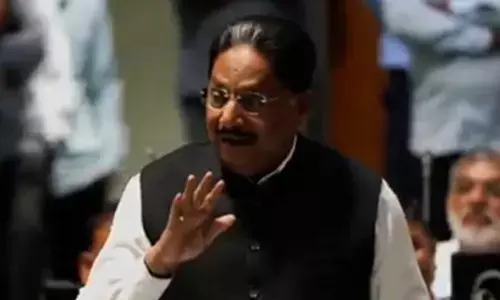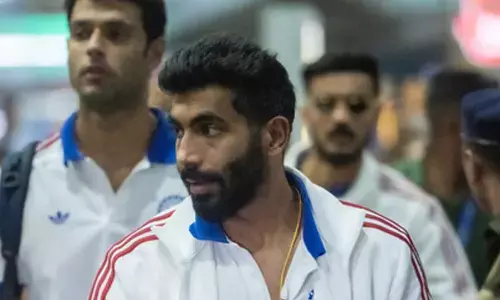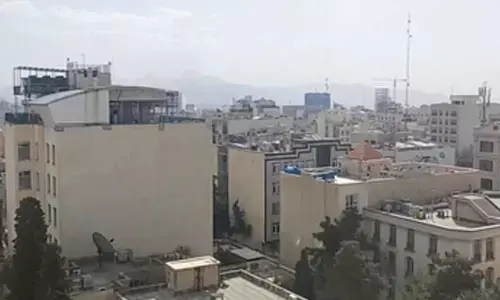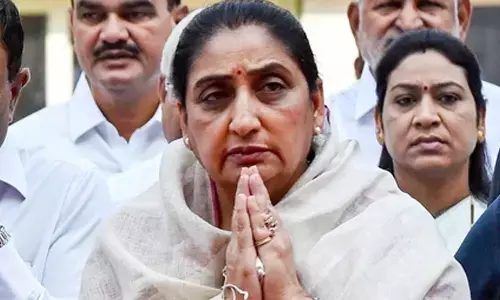Woeful tale of wailing widows of Telangana
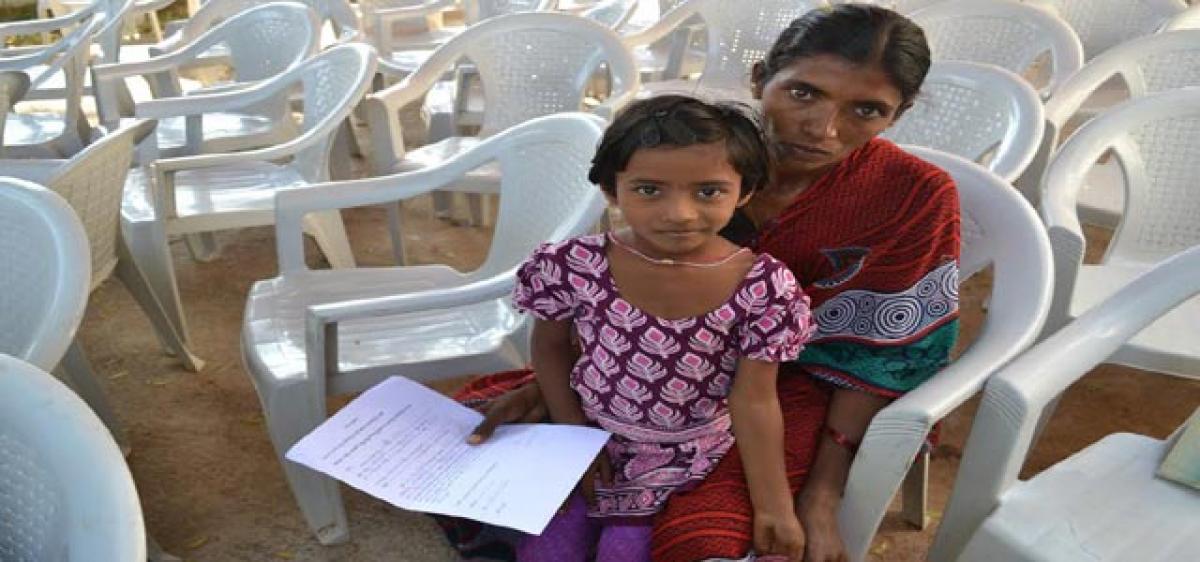
With support not reaching all the families affected by farmers’ suicides, widows and their semi-orphaned children continue to suffer in various ways.
Hundreds of women whose husbands committed suicide due to crop failure and mounting debts continue to live in abject penury as the authorities concerned turn a blind eye to their plight
Siddipet: With support not reaching all the families affected by farmers’ suicides, widows and their semi-orphaned children continue to suffer in various ways. If shortage of finances, deteriorating health and discontinuation of child education are believed to be the major issues, family situations are making lives of already dependent widows more miserable in the absence of a breadwinner.
Pitla Anitha’s husband Ravi had committed suicide a-year-and-a-half ago, just five months after he gave birth to baby Avignya who is now one year old. Ravi had two sisters whose marriage he performed as a responsible brother. Ravi’s younger brother is physically challenged. Even his father is not fit to work. Ravi cultivated maize and kidney beans in his three acres of land, which were destroyed by pests. He tried his best to recover the crop, but in vain. He consumed the same pesticide which he used to kill pests.
With Rs 5 lakh debt burden on her, a physically challenged brother-in-law and a sick father-in-law at home to take care of, Anitha looks depressed and fully malnourished. She only got some respite in the form of her mother who has been taking care of her two infant children at her maternal village in Ahmadipur, Gajwel mandal. Anitha stays with her husband’s family in Banjerupally village of Thoguta mandal.
The three-acre land has been given on lease as there is nobody fit enough to cultivate in the family. On top of it, Amshuday (4), her son, is studying in nursery at Vishwa Shanti Vidya Niketan School near Ahmadipur road, paying Rs 11,000 fee per year. Anitha hasn’t received any form of financial or moral support from the government yet.
Similar situation is of Bao Komala, wife of Srinivas who committed suicide three years ago by hanging due to debt burden and crop failure. He owned three acres of land and was also cultivating four more acres as a tenant farmer. Komala is a resident of Maisampally village in Koheda mandal. For the past three years she has been making rounds to MRO’s office, but every time she was told that financial help could take some more time to reach her.
No assurance has been given to her though. Unable to cultivate, she gave away those three acres on lease. She has two daughters and a son - all under the age of ten. And yes, she is also badly malnourished. She is currently managing the house, working as a farm labourer, earning Rs 2000 - Rs 3000 per month.
In rural Telangana, polygamy is not taboo. Malla Reddy, a resident of Narsaiahpally village in Cheryal had married Bejadi Geetha (his second wife), after Rajavva (his first wife) had failed to give birth to a child. Geetha gave birth to a boy and a girl. Raju, her son, was just seven years old when he was diagnosed with Atrial Septal Defect (ASD), commonly known as ‘hole in the heart.’
Malla Reddy had spent heavily on an operation of Raju at NIMS, but the boy could not recover. It has been 10 years since Raju passed away. Ramya (13), Geetha’s only daughter, is now studying in Class VII. Due to mounting debts and failed crops, Malla Reddy committed suicide by consuming pesticide a year ago. Both the widows have been living together, but Rajavva has not been allowing Geetha to cultivate the four acres of land left by their husband. The village elders tried to mediate but failed to reach a compromise between the two widows.
No financial help has been offered by the government yet, but even if that miracle happens, the issue of legal right on land and suicide compensation could become a problem for the Revenue officials. This could possibly result in neither of the widows nor the daughter getting any support at all. “As per law, the first wife and the children of the second wife will have a share in both movable and immovable properties of the suicide victim,” said Narsing Raj, senior lawyer based in Sangareddy.
Every victimized family has a story to tell. Some things common between many families are that the widows are depressed and malnourished, struggling to meet their ends, experiencing pressure from both their children and their in-laws and have been desperately looking towards the district administration to shore them up.
“Compensation or ex-gratia is just one aspect. There is a need to continuously give psychological and nutritional counselling to the widows who have lost their husbands. Taking care of the surviving family’s healthcare and educational needs is the duty of the government. This requires a serious commitment on part of the district administration,” commented Naveen, a representative of Rythu Swarajya Vedika.
By Vivek Bhoomi



